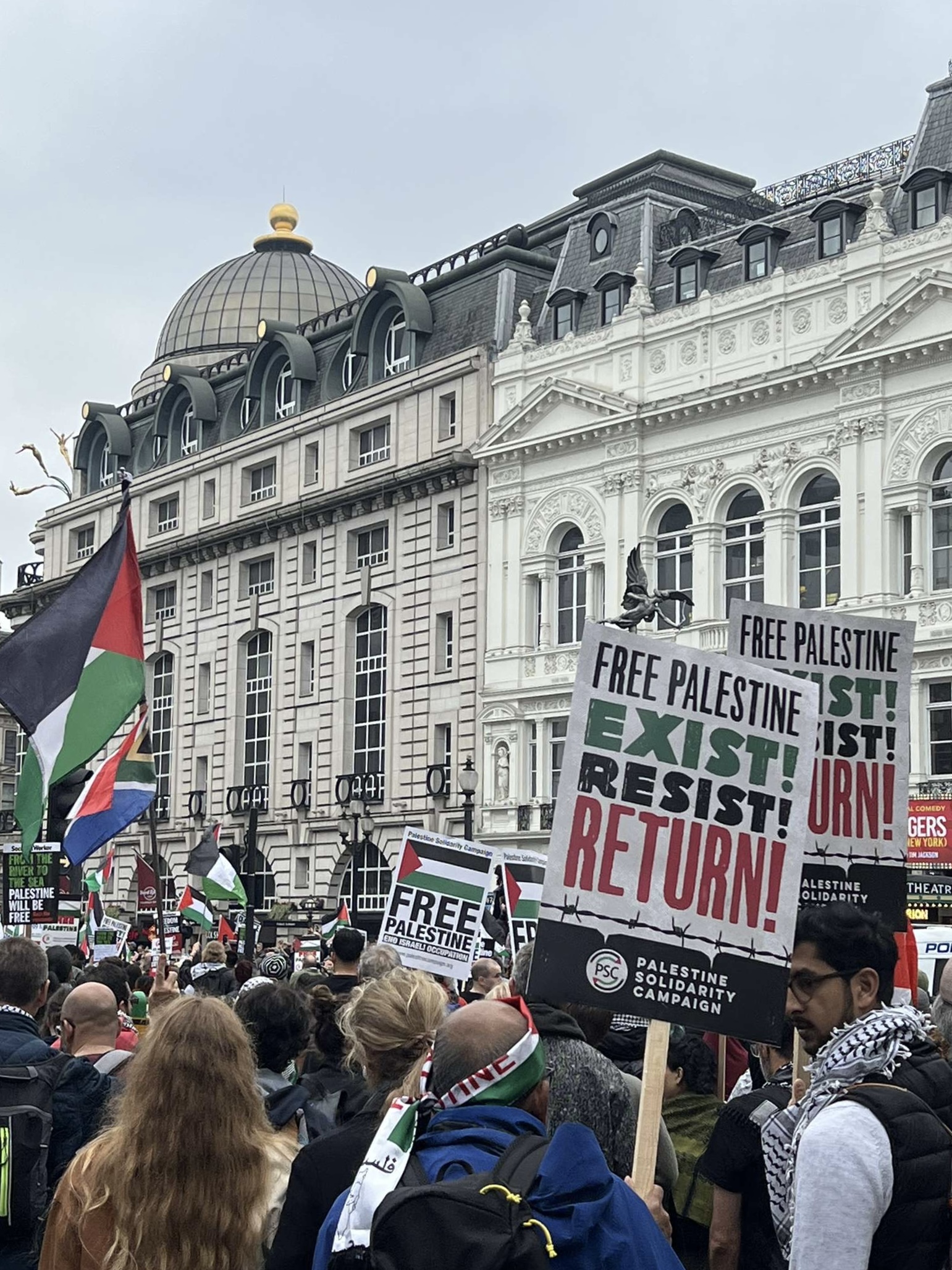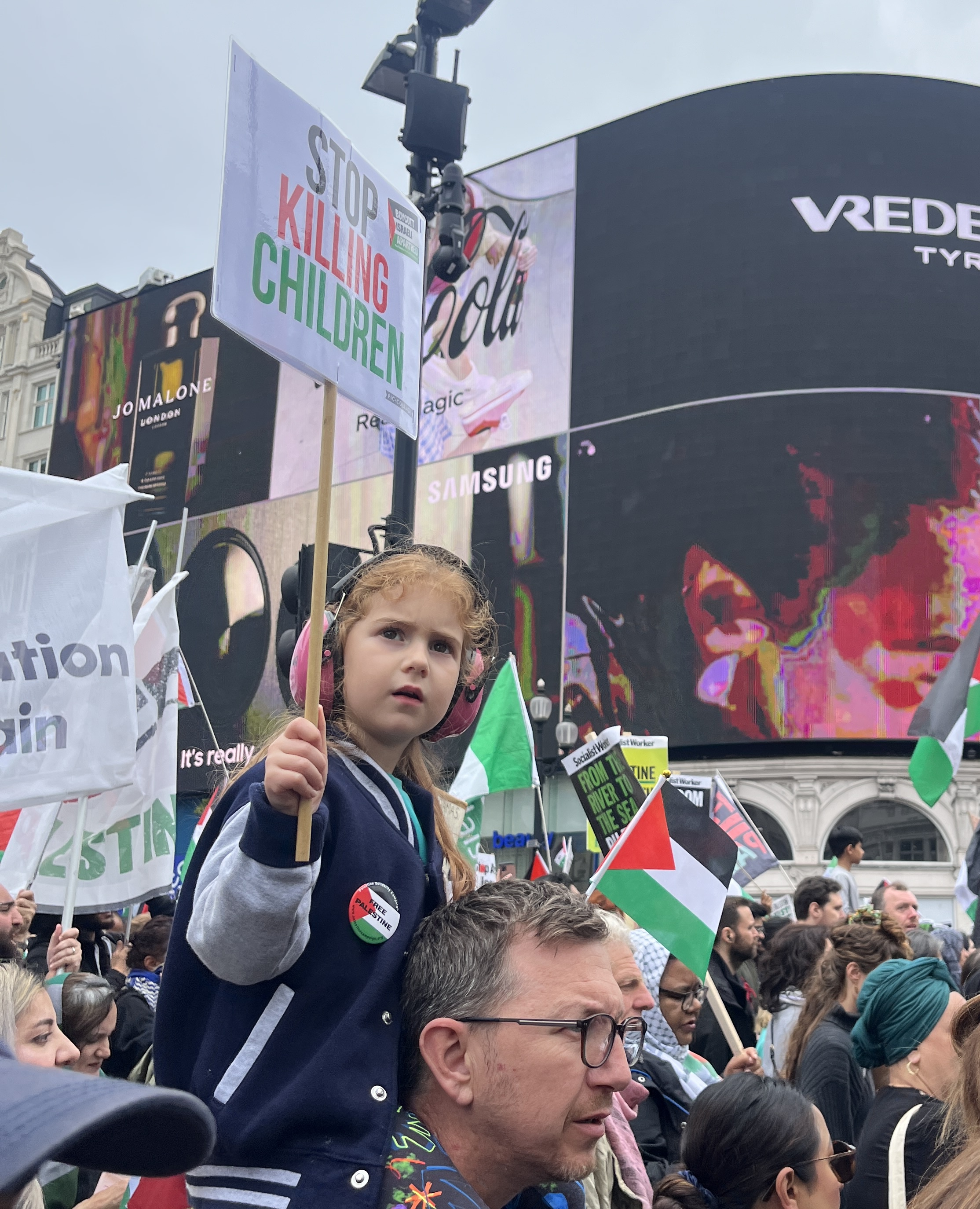TUNIS: Tunisian President Kais Saied extended the state of emergency until Jan. 30, 2023, the official gazette said on Friday.
Developing...
Tunisian president extends state of emergency until Jan. 30
https://arab.news/wqcan
How women and girls in war-torn Gaza are coping with water, sanitation and hygiene collapse

- UN Women has described ongoing Israel offensive as a “war on women” with at least 10,000 female deaths since last October
- Deprived of access to adequate services, more than 1 million women and girls face daily challenges and serious health risks
LONDON: Deprived of adequate access to water, sanitation, and hygiene services, Palestinian women and girls in Gaza are bearing the brunt of the prolonged and deepening humanitarian emergency caused Israel’s ongoing military offensive.
With no resolution to the conflict between Israel and Hamas in sight, more than a million displaced women and girls in the embattled Palestinian enclave continue to endure daily challenges in increasingly dire conditions.
UN Women has described the Israeli military operation in Gaza, which began in the wake of the Oct. 7 Hamas-led attack on southern Israel, as a “war on women,” with at least 10,000 killed since the start of the conflict — among them more than 6,000 mothers.
Those figures, published in April, are now likely far higher as Israel expands its operation and bombing raids into eastern Rafah — Gaza’s southernmost city, now home to some 1.4 million displaced Palestinians.

According to UN figures, this latest operation has forced an estimated 150,000 Palestinians to flee central and northern Rafah.
While the biggest risk to women and girls in Gaza is injury or death under Israeli bombardment, “the unhygienic conditions and lack of water in Gaza are also having a very negative impact on women and girls’ health and dignity,” Fikr Shalltoot, the Gaza programs director at Medical Aid for Palestinians, told Arab News.
Israel denies deliberately targeting civilian infrastructure, accusing Hamas of using residential areas for cover.
As summer approaches, soaring temperatures worsen the spread of communicable diseases caused by a lack of hygiene facilities, water, and access to proper food. The heat itself is also a significant danger to children and the elderly.
“During a recent heatwave, a 5-year-old girl tragically died in her tent due to extreme heat,” Shalltoot said.
Analysis of satellite imagery by BBC Verify found that the Israeli operation in Gaza has damaged or destroyed more than half (53 percent) of the territory’s vital water and sanitation facilities.
The analysis, based on images acquired in March and April, also confirmed that four of the six wastewater treatment plants in Gaza have been damaged or destroyed. These facilities were critical to preventing sewage buildup.
Fidaa Al-Araj, Oxfam’s food security, cash, and protection coordinator in Gaza, said the water, sanitation, and hygiene situation facing women and girls in the enclave was “challenging,” leaving them unable to access clean toilets or private shower spaces.
“Having been displaced into camps or even in a host community, the numbers of people, of internally displaced persons, are very, very high,” Al-Araj told Arab News. “So, there is (overcrowding), there are many difficulties in having access to toilets, bathrooms, showers.”
She added: “Even if you have the facilities, and even if by any stretch they are enough for the IDPs residing in any given space, there is the issue of lack of running water to supply those facilities and to have them up and running all the time.
“So, the hygiene conditions are very compromised, to say the least. When it comes to women and girls, there are issues of privacy, which is completely lacking.”
Where washrooms are present, people have “to wait in line with all sorts of people, even strangers, men and women, just to use the toilet. You have people banging on the door of the toilet while you’re in there, asking you to hurry up because the line is still very long.”
INNUMBERS
• 700,000 Women and girls now hosted in Rafah who have nowhere else to go.
• 93% Women surveyed who feel unsafe in their own homes or in displacement.
• 6/10 Women who reported complications in pregnancy since Oct. 7.
Source: UN Women
This also makes management of menstruation especially challenging, as women and girls “endure longer hours without changing a pad, without washing,” Al-Araj added.
According to UN figures, there are more than 690,000 menstruating women and adolescent girls in the Gaza Strip. But aid agencies, which have had very limited access to the enclave due to the Israeli blockade, have been unable to meet the high demand for hygiene kits.
And since Israel took control of the Palestinian side of the Rafah border crossing on May 7 and closed the nearby Kerem Shalom crossing, the already limited flow of commercial goods and humanitarian aid has been further strangulated.
MAP’s Shalltoot confirmed that women’s sanitary products were “scarce in the local market,” highlighting that this has had “a psychological and physical health impact on women and girls.”
She said: “They resort to homemade, makeshift alternatives, which negatively impact their health by putting them at risk of reproductive and urinary tract infections and protection-related risks.
“This also negatively impacts their psychological well-being, anxiety and insecurity.”
Even the simple act of taking a shower has been almost impossible for women in Gaza for several months.
“It’s very difficult to find a spot designated to take showers, and if it’s there, it’s very difficult to have water,” Oxfam’s Al-Araj said. “And if the water is there, it’s very difficult to find time to take an adequate shower.”
She added: “As a woman and as a mother of girls, I’ve been through all of this. To overcome these circumstances, you space out the shower times, so you take a shower when it’s absolutely needed.
“Sometimes you could spend a couple of weeks or even more without taking a shower.”
The aid agency Medecins Sans Frontieres told the BBC that the destruction of water, sanitation and hygiene facilities has led to “disastrous health consequences for the population,” notably a significant rise in gastric complaints in Rafah.
Contaminated water has also led to a spike in hepatitis A cases, with women and girls facing a heightened risk of exposure to the disease due to their traditional domestic responsibilities and caring for the sick, according to UN Women’s April gender alert report.
The report, titled “Scarcity and Fear,” highlighted that the lack of adequate and dignified facilities also exposes women and girls to reproductive and urinary tract infections.
“This situation could develop into dangerous or concerning health conditions for the women and girls, and I’m really sorry to say that it’s not given priority,” said Al-Araj.
“The heightening demand on the time, resources, and capacity of the medical facilities and staff makes prioritizing women’s issues or girls’ issues very difficult.”
Moreover, there are no quick fixes. Even if sufficient aid is permitted to enter Gaza, facilities need to be carefully planned in order to meet the necessary standards of privacy, cleanliness, and safety.
“It’s not enough to build a shower or a toilet,” said Al-Araj. “It’s not enough to provide it with water and that’s it. You have to think of the site … Is it safe for women and girls, is it accessible at all times … is it targeted maybe by different threats?
“You also have to think about the supplies. You don’t give a hygiene kit or a dignity kit once, for example, and that’s it, your work is done. You need to regularly provide those kinds of kits.”
Al-Araj also emphasized the need for “complementary services,” including extending responses “to enhancing access to sexual and reproductive health care system.
“I can only wish that the aftereffects of all of this wouldn’t linger for long or have irreversible results.”

Al-Gharbia Company launches ‘Roshan’ project in Jeddah

Al-Gharbia Development and Investment Company, the development arm of real estate company Tatweer Group in the western region, announced the launch of its first project in Jeddah at a ceremony in the city. The event was attended by real estate developers, businessmen and investors.
The project, named Roshan, is an ambitious urban and commercial development project located in the north of Jeddah. It consists of residential and commercial buildings and will be constructed in accordance with the highest design and engineering standards.
Boasting a strategic location, Roshan, to be built on a total area of 1 million square meters, will be located close to urban development projects, hotels, residential and commercial complexes, and government facilities.

Expressing delight at the launch of the new project, Mohamed Habes, CEO of Al-Gharbia Development and Investment Company, said Roshan represents “a wonderful start for the company.” He said: “The project embodies the company’s ambitious standards in construction and real estate development, which take into account the creation of a comprehensive and integrated community environment that guarantees its customers the enjoyment of quality of life in a balanced and harmonious society.”
The (Roshan) project supports the company’s ambitions to contribute to Saudi Arabia’s Vision 2030.
Mohamed Habes, CEO of Al-Gharbia Development and Investment Company
Habes added: “The project supports the company’s ambitions to contribute to Saudi Arabia’s Vision 2030, which aims to improve the quality of life, enhancing real estate development projects, playing a pivotal role in shaping a vibrant society and a thriving economy.”
Comprising 20 commercial plots and 614 residential plots, Roshan will also include green spaces and a central park built on an area of 29,000 square meters, offering an enjoyable healthy environment for its residents.
HIGHLIGHT
Roshan, to be built on a total area of 1 million square meters, will be located close to urban development projects, hotels, residential and commercial complexes, and government facilities.
Habes said the project’s infrastructure facilities, such as electricity, water and sewage networks, and communication and internet services, will be developed to guarantee comfort and luxury for the residents. Roshan will also include seven public parks, seven schools, seven mosques, a health center, and a main park in the heart of the project, consisting of sports areas and cycling tracks.
Petal Ads and talabat partner to boost regional expansion

Huawei has announced its partnership with talabat, a regional platform for everyday deliveries. Through this partnership, talabat will use Petal Ads, Huawei’s digital advertising platform, to propel its business expansion through cutting-edge targeting capabilities.
The collaboration was officially initiated with a signing ceremony, which took place on May 7 at the Petal Ads booth during the Arabian Travel Market 2024 in Dubai. This alliance between two industry leaders signifies a commitment to revolutionizing digital advertising and enhancing user engagement.
talabat will integrate targeted advertising initiatives powered by Petal Ads. Furthermore, the talabat app will be featured in Virtual Preload, a unique lifestyle folder on all Huawei devices. This first-of-its-kind initiative for talabat will ensure faster access to the app for Huawei users.
“Partnering with talabat, a leader in the food delivery and q-commerce industry, is a significant step for Petal Ads,” said William Hu, managing director of Huawei Consumer Business Group, Middle East and Africa Eco Development and Operation. “This collaboration offers an exciting opportunity to leverage our digital advertising expertise and contribute to the success of the talabat platform, creating new avenues for businesses to connect with their audiences.”
Stefano Vecchio, vice president, strategy and innovation at talabat, expressed enthusiasm about the collaboration: “We’re excited to partner with Petal Ads to utilize Huawei’s media and third-party channels, as well as have the talabat app pre-installed onto millions of Huawei mobile devices across the region. This partnership will help us further simplify the everyday life of customers in the region by delivering food, groceries and more to their doorstep.”
This collaboration will empower talabat and Petal Ads to leverage the strengths of both platforms, providing a unique opportunity to connect with their respective target audiences in a more personalized and effective manner. Additionally, users and businesses alike can expect an enhanced experience from this partnership.
Dyson unveils first dedicated wet floor cleaner

Dyson has unveiled its latest floorcare technology, designed to pickup wet and dry debris in one go to deliver a hygienic clean on hard floors, across large spaces. With 1-liter clean water tank to cover flooring up to 290 square meters, the Dyson WashG1 uses a combination of hydration, absorption, and extraction technologies to remove wet and dry debris in one go — automatically separating it out, so maintenance is more hygienic.
Charlie Park, vice president of Dyson Home Engineering at Dyson, said: “Wet cleaning is considered a necessary chore globally and the perceived burden has been the target of a vast array of wet floor cleaning formats. Despite this, users’ expectations are often left unfulfilled when it comes to stain removal, pickup performance, and floor finish. Dyson engineers solve the problems others ignore and we thrive on the challenge of creating better technology. The Dyson WashG1 is the result of this; our first dedicated wet machine to wash hard floors, properly and hygienically.”
Two individually powered rollers counter-rotate whilst a pulse-modulated pump distributes water evenly across 26 precisely positioned hydration points, along the full width of each roller.
Each roller is made up of a highly absorbent microfiber, with 64,800 filaments per cm2. This combination of high-density microfiber and consistent application of clean water ensures liquid spills are absorbed, whilst dry dirt, debris, and hair is enveloped by the millions of filaments. By positioning two rollers at the front and back of the machine, Dyson engineers also achieved longer dwell time on stains with each pass, for powerful and fast stain removal.
Dyson’s unique separation technology divides debris and dirty water at source, for hygienic, no-touch disposal. Dirty water is extracted from the rollers by durable extraction plates, whilst secondary nylon-bristled inner brush bars remove dirt and debris from the microfiber rollers, flicking it straight into a removable debris tray.
The debris tray has been designed with a 500-micron mesh to separate dirty water from the large debris. Powered by an extraction pump, dirty water is immediately collected in a 0.8 liter capacity dirty water tank, without allowing large debris to pass through the machine. Keeping the dirt and debris in the head of the machine, and the dirty water in a separate tank allows for easy and hygienic disposal.
The Dyson WashG1 wet floor cleaner is available from August priced at SR2,799 ($746) exclusively through Dyson Direct.
1m march in London to mark 76 years of Nakba

- 2-km march led by Gazan photojournalist Motaz Azaiza
LONDON: About 1 million people peacefully marched in London on Saturday to commemorate the 76th anniversary of the Nakba (Catastrophe), which saw the expulsion of nearly 800,000 Palestinians from their homeland when Israel was established in 1948.
Regular Saturday marches in London since the Gaza war began last October have drawn hundreds of thousands of participants.

Crowds gathered at the BBC headquarters for a 2-km march led by Palestinian photojournalist Motaz Azaiza and a group of young British Palestinians carrying large lock keys, which symbolize their inalienable right to return to their homes under international law.
Azaiza’s Instagram following has surged to over 18 million as he documented the daily realities of Israel’s invasion and relentless bombardment of Gaza.
Since January, the 24-year-old has been traveling worldwide to advocate for a ceasefire and an end to the Israeli occupation.
“I didn’t believe that I’d stay alive to stand today here in London in front of the people. You saw me there under the bombing,” he told the crowd.
“You made me hope that there was hope. I didn’t believe in anyone, but … today, the moment I saw you all I thought there’s hope. The hope is in the people, not in the governments.”
Several pro-Palestinian organizations across the UK organized the march, calling on the British government to halt arms exports to Israel and restore funding to the UN Relief and Works Agency for Palestine Refugees in the Near East.
“Today, we reflect on the reality that this Nakba couldn’t be sustained by Israel without the enduring complicity of Western powers, including successive UK governments,” said Ben Jamal, director of the Palestine Solidarity Campaign.
“Today, even in this darkest moment, we also march to celebrate and affirm the refusal of the Palestinian people to succumb to erasure. We won’t stop, we won’t rest, until the Palestinian people finally achieve their liberation.”

The rally was met with a much smaller counter-protest carrying Israeli flags. There were only eight arrests reported by the London Metropolitan Police.

















